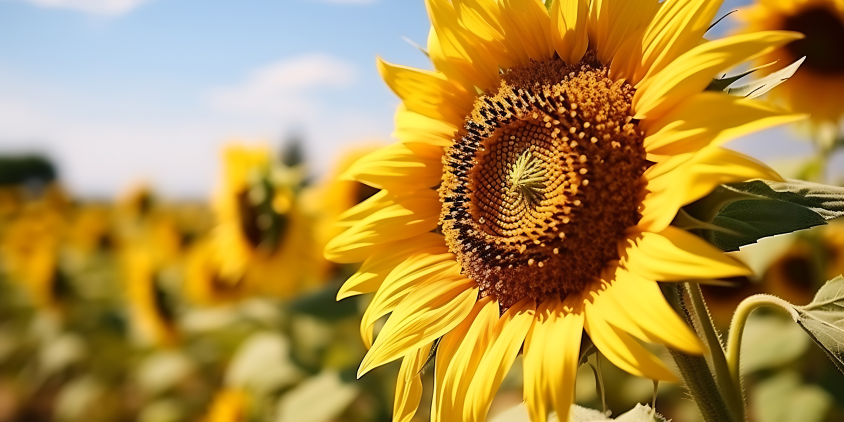‘How I ventured into sunflower farming’
Dr Erisa Sarki Danladi, an advocate for women and children’s rights, is also the chairperson of the Sunflower Farmers Association in Gombe State. She is championing sunflower farming as a highly profitable and less labour-intensive alternative to traditional crops like maize. Dr Erisa’s interest in sunflower farming was sparked when she noticed farmers cultivating sunflowers […]

sunflower farming
Dr Erisa Sarki Danladi, an advocate for women and children’s rights, is also the chairperson of the Sunflower Farmers Association in Gombe State.
She is championing sunflower farming as a highly profitable and less labour-intensive alternative to traditional crops like maize.
Dr Erisa’s interest in sunflower farming was sparked when she noticed farmers cultivating sunflowers alongside millet and maize for local consumption.
Intrigued, she took time to learn proper cultivation techniques and soon developed a passion for the crop.
- How youths can make money from pineapple farming
- Badume: Kano market where onions attract foreigners
Before venturing into sunflower farming, Dr Erisa primarily grew maize, harvesting around 70 bags of maize and soybeans annually. While she now focuses on sunflower farming, she continues to cultivate maize, combining both crops to diversify her farming efforts, Weekend Trust gathered.
In an interview with our correspondent, she said the sunflower varieties grown in Kaduna and Gombe states are of superior quality and well-suited for export, which led to the formation of the Sunflower Farmers Association.
The association, she said, focuses on improving seed quality and increasing sunflower exports.
One key advantage of sunflower farming, Dr Danladi pointed out, is its low water requirement, making it ideal for dry-season farming with controlled irrigation. Unlike most crops sold in bulk, sunflower seeds are sold by weight, adding another layer of profitability.
Dr Danladi explained that one hectare of land requires approximately one kilogram of sunflower seeds for planting. She currently manages 10 hectares of sunflower farms on her own, while the association collectively farms 50 hectares, particularly in Yamaltu Deba Local Government Area, where the soil is highly favorable for sunflowers.
Sunflower farming is typically done twice a year, during the rainy and dry seasons. To maximise profits, the association participates in both cycles. The estimated investment for one hectare of sunflower is around N120,000, with high-quality seeds being a priority to ensure profitability and export potential.
In addition to seed sales, sunflower oil is extracted in a process similar to that used for groundnut oil, and it is widely used for cooking. The seeds are also edible and highly nutritious.
Sunflower thrives when fertilised with organic fertilisers, particularly animal manure.
She noted that this natural fertiliser has become increasingly sought after by farmers who recognise its benefits.
She called on the government for support the farmers in the provision of fertilisers and seeds.
